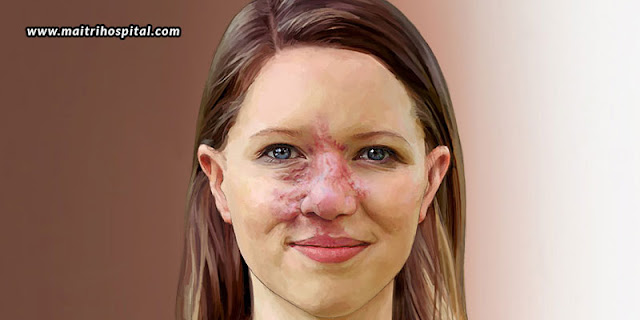AVM – What It Is, Its Types, Its Symptoms, And Its Treatments
Arteriovenous malformation or AVM is the abnormal connection between the arteries and veins, which appears as tangles, and can appear in any part of the brain or spine. Generally, blood flows from the heart through large arteries to all the parts of the body, which get branched into smaller capillaries, where the blood exchanges oxygen and nutrients with the body tissues, and picks up waste. The blood then travels back from the capillaries to the heart through veins. But, when a patient is suffering from AVM, there are no capillaries to lead the path. The arteries and veins directly connect to one another, which creates high-pressure shunt or fistula. Direct blood flow from the arteries is not able to be handled by the veins, which is why they stretch and enlarge trying to accept the blood, thus resulting in rupture and bleeding.
Depending upon the type of AVM and where it is formed, the symptoms may vary. Some AVMs have no specific symptoms, and have no risk on one’s health or life; but there are others that can have severe and devastating effects. The general symptoms include migraine-like headaches, seizures, vomiting, stiff neck, weakness in legs and arms, paralysis, sudden severe back pain, and abnormal swishing/ringing sounds in the ears. To identify what kind of AVM you are suffering from, you will need to approach a relevant doctor to diagnose your condition and let you know, not only the type of AVM, but also the treatment.
Treatment options for AVM range from medications to aggressive surgery, depending upon the type and symptoms observed within the patient. If the condition is mild, the doctors may use anticonvulsants to prevent seizures, and medication to lower blood pressure. But, if the condition is severe, surgery is the only option. The most common surgical treatment is radiosurgery, which involves focusing multiple radiation beams on an AVM to clog it. Another procedure is intravascular therapy, which closes off the vessels of an AVM by one or many non-surgical means; for example, by using catheters to deliver agents that can block the blood vessels.
The main advantage of surgical procedures is the possibility of removing the malformation in a single operation. However, surgery is always complicated, which requires specially trained neurosurgeons to perform the job. Any carelessness may result in problems like stroke, infection, hemorrhage, cerebral edema, or even death!
God forbid, but if you are a victim of AVM, make sure you get yourself checked and treated by an experienced professional. And, for any other neurosurgical problems, you can always get in touch with Maitri Hospital, where there is a team of specialists in the neurosurgical department, who have hands-on experience at effectively executing skull bone surgeries, burr hole surgeries, skull fracture treatments, slip disc surgeries, spinal cord decompression, meningocoele excision, and much more. So, when you are being treated here, you can rest assured that you are getting the finest treatment of neurosurgery in Kota!




Comments
Post a Comment